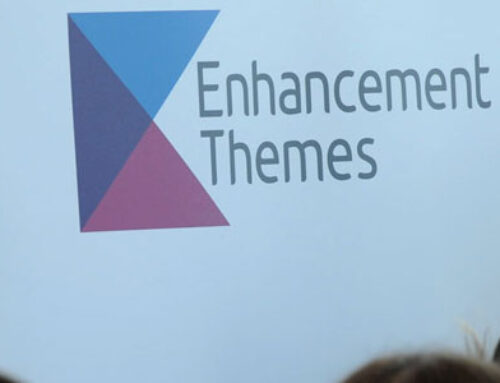In this blog Alia Nazor, Assistant Professor (EGIS), and Stella Galimpin, Effective Learning Advisor, explain their Enhancement Themes Project to provide peer support for students in Malaysia.
The ‘New Normal’ has irretrievably changed the way we teach, the way we learn, and the way we engage our students. To nimbly adapt to the New Normal, Peer Assisted Learning Support (PALS) deftly moved on to an eLearning platform or ePALs whilst retaining its face-to-face component by conducting online peer tutoring via MS Teams and BBCU. The question that came quickly into our collective minds last March was, will it bode well for student engagement? With unstintingly hope, we answered a silent yes.
The Coronavirus pandemic caught up with us like a bushfire, and just like water to fire rendered this project indispensable. This New Normal presents both challenges and opportunities in delivering engaging content to our students. And to deliver a rich online student learning experience, a multisensory approach to learning coupled with game-based instructional videos arranged in an online gamified platform, was undertaken by this project. Our fervent hope was that it will resonate with our tech-savvy generation since ePALs offers a flexible learning environment.
So, let’s talk about how ePALs enhanced student learning in Malaysia.
Our enhancement themes project expanded PALS from face-to-face-tutoring to establishing an online presence. March 2020, our University’s swift response to the pandemic from face-to-face to blended learning has changed (and may well continue changing) the context of what a New Normal student learning environment should be. But it should, however, retain and even strengthen our student engagement even in this unsettling times. To develop an online learning environment which will enable students to learn anytime and anywhere was a thought that came into fruition, coupled with the fact that the Malaysian educational scenario is a tad different from our Scottish roots.
Our Malaysia campus offers a direct entry into the stage 2 of the Scottish 4/5-year programmes. Thus, there is a probability that some key concepts taught in Stage 1 may have been missed by a group of students. Depending on the students’ background, some may encounter knowledge gaps as they progress through the semester thus impacting their understanding and subsequent learning. We believe that when an educational issue is identified early, measures can then be put into place to embrace our students’ learning diversity.
Through our Start-Stop-Go (SSG) initiative, students needing specific support are identified via continuous formative assessments. The crucial observation gleaned from SSG was that the students needed additional support with Maths and Maths-related courses. This information was then fed into PALS, a student-led group of senior students who tutor junior students in challenging courses in the University. PALS focuses on peer-to-peer tutoring to bridge the gap of understanding between the lectures and tutorials. This is achieved because PALS tutors are normally seniors who have gone through these courses and through prior experience have a deeper understanding of the courses.
Our project sought to investigate if students’ gap in knowledge and understanding on Mathematics courses during the Foundation stage and transitioning to the Undergraduate stage can be bridged by the scaffolding tool, ePALs, utilising elements of game-based learning and gamification to increase students learning experience.
PALS online platform was created and evaluated using the MS Office suite of applications. We used a combination of the MS SharePoint for hosting the online platform, MS Stream to upload the videos, MS Forms for the quizzes, and OneNote for additional information. What we envisioned at that time was a user-friendly platform, readily accessible to our students anytime and anywhere. We aimed that our target students engage into the online platform, thus, it was evaluated by a focus group of former Foundation students who were transitioning into the undergraduate courses of Heriot-Watt University Malaysia. (For more details, go to the ePALS online platform.)

Screenshot of the ePALS platform
Results from the focus group were grouped into four themes: ePALs as a useful tool, ePALs as a source of motivation, ePALs as an attractive learning tool, and suggestions for improvement. The participants believed ePALs was a useful tool for undergraduate preparation. They stated that ePALs offered opportunities for deep learning, clarification of understanding, promotion of an appropriate learning attitude, and help in exam preparation. The participants also stated that ePALs was a source of motivation for them. They believed this was because ePALs provided a positive and fun learning environment and easily digestible videos. In terms of providing a positive and fun learning environment, participants stated that the motivational quotes, pop up pictures, background music, and fun facts all contributed towards motivating them to learn as these features made learning with ePALs an encouraging, interesting, happy, and fun experience. The quizzes and leader board also contributed towards a positive and fun learning environment as these features resembled games that allow students to benchmark themselves and have fun. Participants reported that the short video length and fast-forwarded workings were motivating to them as they only needed to fully focus on the video for a short duration.
The participants regarded ePALs as an attractive learning tool. They stated that this was because ePALs was user-friendly and allowed for active participation in learning. In terms of user-friendliness, participants noted that the SharePoint webpage was easy to navigate as the topic videos were listed out in order with short descriptions underneath them, making it easier for participants to distinguish and select the right video. Also, participants stated that SharePoint was very convenient as it was easily accessible and could be shared between friends through a simple link. Additionally, participants reported that another attractive feature of ePALs is that the videos could be accessed 24/7 and ubiquitously so students are able to make up for the contact hours lost between their lectures due to the pandemic and do so anywhere such as on the bus ride home using any mobile platform, e.g., phone and laptop.
Participants expressed useful suggestions that were incorporated into improving this online learning platform before promoting this to our Foundation and Year 1 students from the 4th week of September to the 2nd week of October this year. To date 719 students (approximately 30% of the Malaysian campus) have engaged in the ePALs platform. More avenues of student engagement are foreseen: the Foundation programme has three intakes per year, a large group of undergraduate students enrol during the September intake, and a small group of students go for the January intake.
Overall, ePALs holds promise as a permanent learning tool for Heriot Watt University Malaysia to utilise and move forward with during this pandemic and even beyond the pandemic. When the New Normal will again be just plain old normal, then we can safely say that this too shall pass.
Note:
The Project team consisted of Stella Marie Galimpin (LTES), Roberto Briones (MACS), Siti Nuralia Mohamad Nazor (EGIS), and Emma Coutts (Maths Gym); the student collaborators were Muhammad Imran Anaqi bin Azman (MACS), Amin Rahmat Cayzer bin Ahmad Yuseoff (MACS), Adam Haris bin Haidi Faiz (EPS), and Cheryl Yiuen Chan (SoSS).
Image credit: Students wearing masks by Li Lin on Unsplash.
Screenshot of ePALS platform by LTA, CC-BY-SA-NC.





